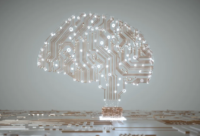Medical researchers and lawyers say our rocky relationship with the United States creates an urgent need to protect a critical Canadian resource: patient health information that can be used to train artificial intelligence. “Our health data is the most valuable health data set in the world,” said Natalie Raffoul, an intellectual property lawyer in Ottawa. “You can’t go to any other jurisdiction and be able to pool a data set like this because no one else has a public health system like this with the kind of ethnic diversity that…
Read MoreTag: AI
As police increasingly use facial recognition technology, calls grow for regulations | CTV News
Some police services in Canada are using facial recognition technology to help solve crimes, while other police forces say human rights and privacy concerns are holding them back from employing the powerful digital tools. It’s this uneven application of the technology — and the loose rules governing its use — that has legal and AI experts calling on the federal government to set national standards. “Until there’s a better handle on the risks involved with the use of this technology, there ought to be a moratorium or a range of…
Read MoreWith AI, workplace surveillance has ‘skyrocketed’—leaving Canadian laws behind | CityNews Everywhere
OTTAWA — Technology that tracks your location at work and the time you’re spending in the bathroom. A program that takes random screenshots of your laptop screen. A monitoring system that detects your mood during your shift. These are just some ways employee surveillance technology — now turbocharged, thanks to the explosive growth of artificial intelligence — is being deployed. Canada’s laws aren’t keeping up, experts warn. Read full story here: With AI, workplace surveillance has ‘skyrocketed’—leaving Canadian laws behind | CityNews Everywhere
Read MoreWhat the evolution of our own brains can tell us about the future of AI | engadget
The explosive growth in artificial intelligence in recent years — crowned with the meteoric rise of generative AI chatbots like ChatGPT — has seen the technology take on many tasks that, formerly, only human minds could handle. But despite their increasingly capable linguistic computations, these machine learning systems remain surprisingly inept at making the sorts of cognitive leaps and logical deductions that even the average teenager can consistently get right. Read full story here: What the evolution of our own brains can tell us about the future of AI |…
Read MoreHitting the Books: How can privacy survive in a world that never forgets? | Engadget
As I write this, Amazon is announcing its purchase of iRobot, adding its room-mapping robotic vacuum technology to the company’s existing home surveillance suite, the Ring doorbell and prototype aerial drone. This is in addition to Amazon already knowing what you order online, what websites you visit, what foods you eat and, soon, every last scrap of personal medical data you possess. But hey, free two-day shipping, amirite? The trend of our gadgets and infrastructure constantly, often invasively, monitoring their users shows little sign of slowing — not when there’s…
Read MoreRCMP Acknowledges Using Facial Recognition Technology, But Won’t Say Where | CBC News
The RCMP has for the first time acknowledged using controversial facial recognition technology that has raised privacy concerns, saying it was used in the Mounties’ efforts to crack down on online child sexual abuse. The force said it has used the technology in 15 child exploitation investigations over the past four months, resulting in the identification and rescue of two children. The statement also mentioned that “a few units in the RCMP” are also using it to “enhance criminal investigations,” without providing detail about how widely and where. “We are…
Read MoreAmazon, Google, AI And Us: Are We Too Close For Comfort? | CNET
Beyond facial recognition, we’re giving smart devices and platforms our intimate biometric details. Iris scanning is a powerful identification tool. Computers aren’t just getting smarter, they’re studying us more closely too. Whether it’s in the name of public safety, fraud protection or simple convenience, we’re feeding AI systems details that identify us and track our comings and goings. Read full story here: Amazon, Google, AI And Us: Are We Too Close For Comfort? | CNET
Read MoreThe Writing Of This AI Is So human That Its Creators Are Scared To Release It | CBC News
A new text generator driven by artificial intelligence is apparently so good that its creators have decided not to make it publicly available. The tool was created by OpenAI, a non-profit research firm whose backers include Elon Musk, Peter Thiel and Reid Hoffman and which was founded with the mission of “discovering and enacting the path to safe artificial general intelligence.” But now OpenAI is concerned that something these well-intentioned researchers built could easily be misused, fearing that it would be dangerous in the wrong hands. Read full story here: The Writing Of This AI Is So human That Its Creators…
Read MoreWho Has Your Data? Researchers Scrutinize Apps For Undisclosed Ties To Advertisers, Analytics Companies | CBC News
If you want to better understand how an app or a service plans to use your personal information, its privacy policy is often a good place to start. But a recent study found there can be a gap between what’s described in that privacy policy, and what the app actually collects and shares. An analysis by University of Toronto researchers found hundreds of Android apps that disclosed the collection of personal information for the app developer’s own purposes — but, at the same time, didn’t disclose the presence of third-party…
Read MoreIf A.I. Doesn’t Replace Your Job, It May Make It Much More Pleasant | Digital Trends
From The Matrix to Wargames and iRobot to Metropolis, movies and novels have threatened us with a revolution of AI and robots for decades, whether that’s through a violent uprising or just replacing us at our jobs. Today, those theoretical dystopian futures seem more realistic than ever. With the growth of smart assistants and advanced machine learning, there is a growing concern that in the decades to come, there may be very little work for humans to do. But for just a moment, let’s set aside our apocalyptic tendencies and…
Read More









